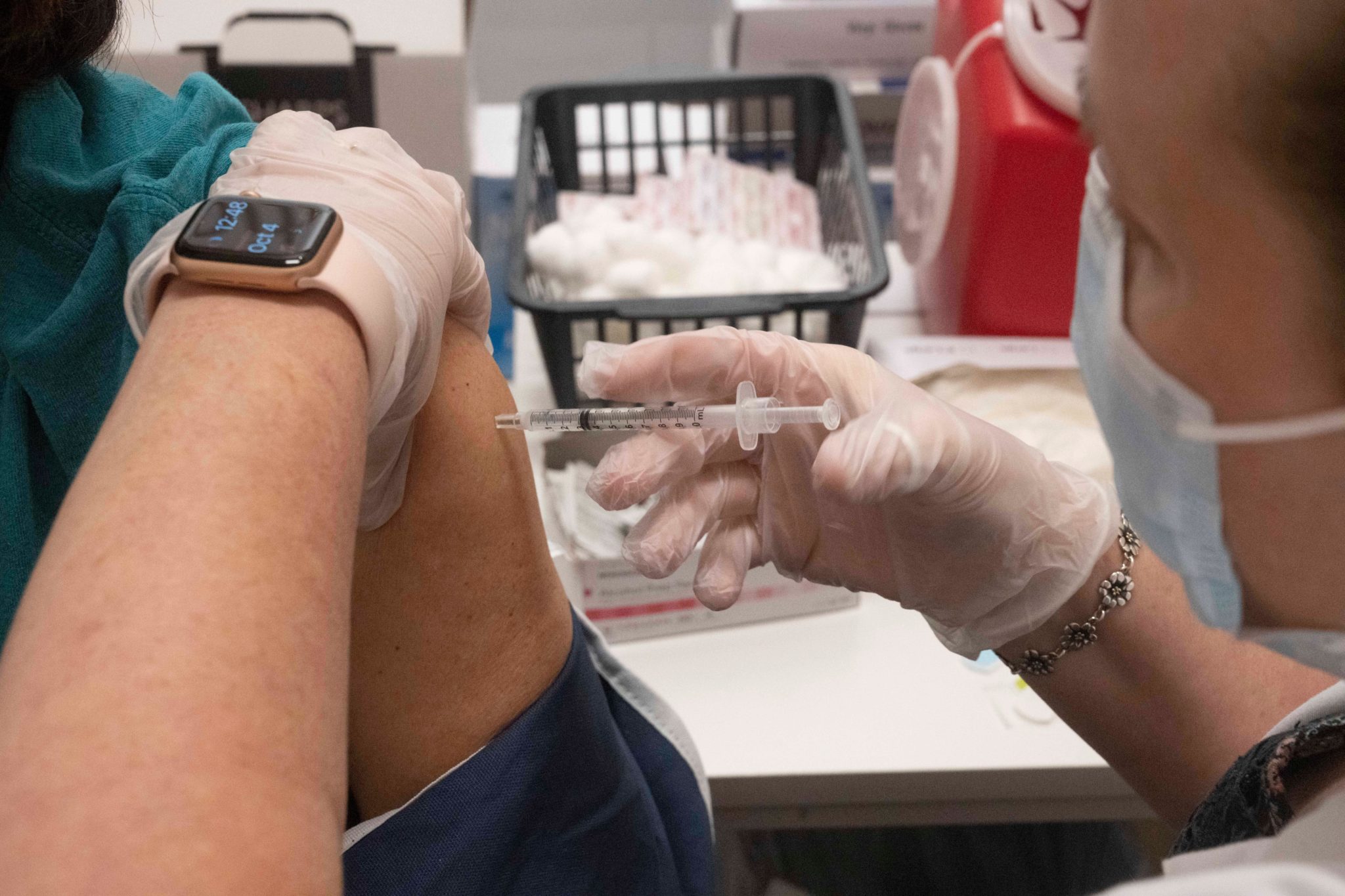The Omicron variant could ‘fill up hospitals and intensive care units’ around the world, even if it turns out to be milder than previous variants.
The World Health Organisation’s (WHO) Dr Mike Ryan today said every health system in the world needs to prepare for an Omicron surge.
Speaking at an Irish Aid webinar hosted by the Institute of International and European Affairs (IIEA), the Executive Director of the WHO Health Emergencies Programme said Omicron was spreading rapidly and starting to displace Delta in some areas.
NPHET last night estimated that Omicron now accounts for around 11% of cases in Ireland – up from less than 1% a week ago.
Recent studies appear to show that vaccines may be less effective at preventing infection from Omicron, but that a third or booster shot continues to offer strong protection against severe disease or death linked to the new strain.
Meanwhile, a new study from South Africa, where the variant was first identified, suggests that on average, 29% fewer people are being admitted to hospital compared to the Delta variant.
Experts including Trinity professor Kingston Mills have warned that the South African data may be skewed by the high numbers of people in South Africa who have been previously infected with COVID.
 A booster shot of the Pfizer vaccine against COVID-19 is administered at a pharmacy clinic in the US state of Texas in October 2021. Picture by: Bob Daemmrich / Alamy Stock Photo
A booster shot of the Pfizer vaccine against COVID-19 is administered at a pharmacy clinic in the US state of Texas in October 2021. Picture by: Bob Daemmrich / Alamy Stock PhotoDr Ryan said hospitals should be preparing for an Omicron surge.
“Even if Omicron turns out to be a milder disease in an individual patient; if we generate millions and millions and millions of cases, we will fill the hospitals up and we will fill the ICUs up,” he said.
“So, we need to refocus on public health and social measures. Vaccinate the unvaccinated. We need to make sure that hospitals are ready now. Every single health system needs to get ready.
“We are going to likely to see a very large Omicron wave. We need to protect the health system; we need to protect those we love. It's not rocket science; everyone knows how to do it.”
He said the main concern facing countries now is the unvaccinated population.
“There is some preliminary data coming through now, but it is very preliminary,” he said.
“I would expect the current vaccines to provide significant protection against hospitalisation and death in people who have had a full primary course.
“What I am most concerned about right now today, is the fact there are unvaccinated people in every country who are at high risk,” he said.
“People have moved away from even the most basic measures to protect themselves and others, be it government policy or individual behaviour, in terms of mask wearing, avoiding crowded places, in terms of handwashing, in terms of ventilated spaces, all of those issues.
Dr Ryan said countries should focus on encouraging the unvaccinated to get the jab and getting the booster out to vulnerable populations and people over the age of 55.
He warned that there is “no silver bullet” when it comes to the virus and countries must also refocus on public health measures to reduce transmission.
"We can't vaccinate our way out of this. We can't lockdown our way out of this. What we have to do is have coherent, multi-layered strategies that get us through to the end of this pandemic,” he said.
Earlier today, the Taoiseach said it is now "all hands on deck" to speed up the booster vaccine campaign.
Pop-up vaccination centres and longer opening hours for existing clinics are among the measures being considered to “really accelerate” the booster rollout.
Currently, anyone aged over 50 is eligible for a booster vaccine, but that's set to be extended to all over 40s shortly.
Meanwhile, people are now eligible for a booster three months after their second dose - a major change from the previous five-month interval.









